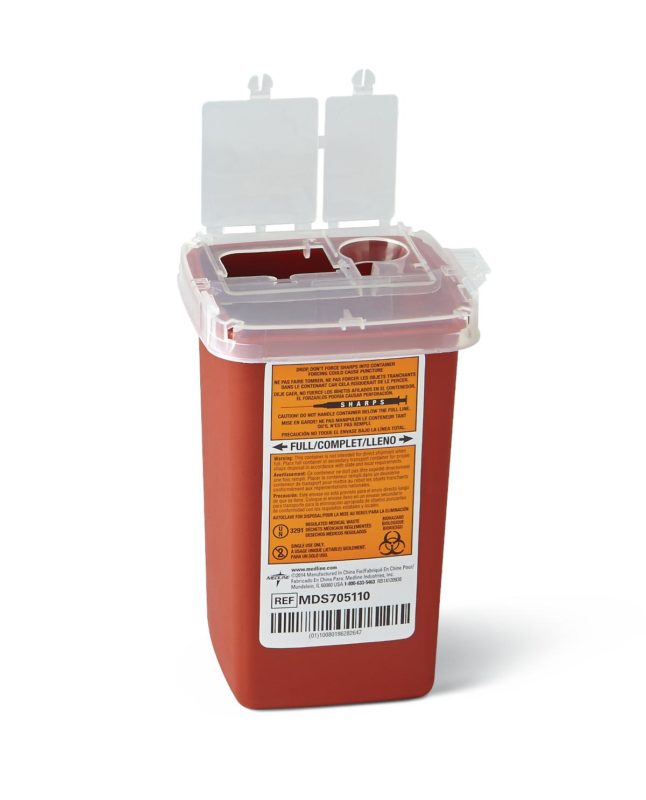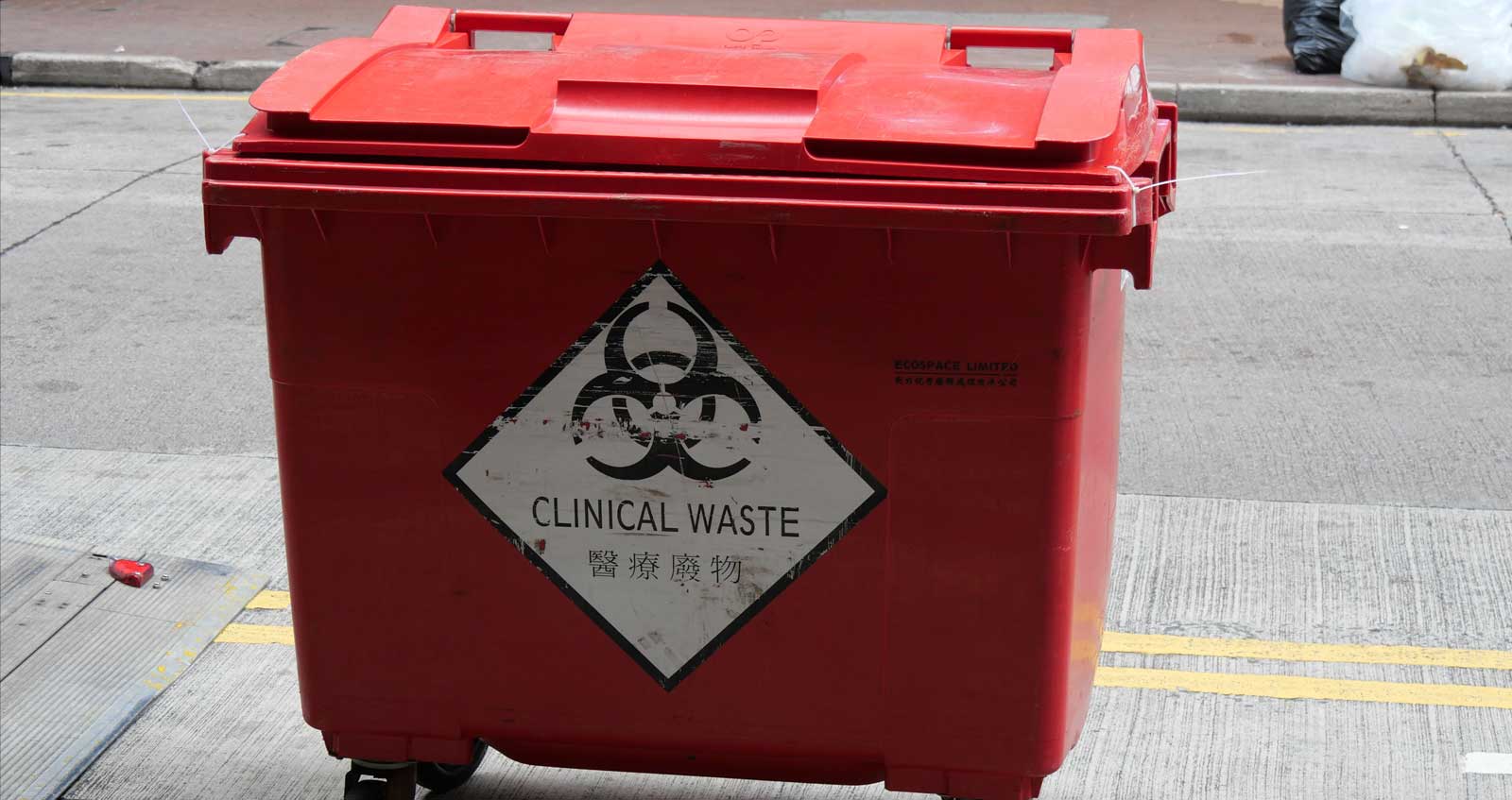Security First: Your Overview to Responsible Medical Waste Removal Services
Security First: Your Overview to Responsible Medical Waste Removal Services
Blog Article
Stay Ahead of Regulations: Specialist Guidance on Medical Garbage Disposal
In a globe where the medical care industry is regularly advancing, it is vital for clinical facilities to remain in advance of laws when it comes to the correct disposal of clinical waste. From comprehending the various categories of clinical waste to applying the appropriate collection and partition approaches, this conversation will certainly supply useful insights and workable ideas to assist facilities remain ahead of laws in the ever-changing landscape of medical waste disposal.
Comprehending Medical Waste Categories
Understanding clinical waste groups is crucial for correct disposal and administration in medical care centers. Medical waste describes any type of waste generated by healthcare activities that may pose a risk to public health and wellness or the environment. It is important to classify medical waste properly to ensure its secure handling, disposal, treatment, and transport.
There are several categories of clinical waste that medical care facilities need to be acquainted with. The most common groups include transmittable waste, pathological waste, sharps waste, pharmaceutical waste, and chemical waste. Each category has certain guidelines and regulations for its proper administration and disposal.
Infectious waste includes products polluted with blood or other physical liquids, such as handwear covers, gowns, and laboratory cultures. Pathological waste refers to human cells, body organs, or body parts that call for special delivery and disposal. Sharps waste consists of made use of needles, syringes, and various other sharp objects that can cause injury and transmit infections. Drug waste makes up run out, extra, or contaminated medicines that need careful handling and disposal. Chemical waste consists of solvents, anti-bacterials, and various other chemical substances used in medical care centers.
Remaining Up-To-Date With Regulatory Changes
Remaining current with regulatory changes is important for healthcare centers to make sure compliance and proper monitoring of clinical garbage disposal. medical waste removal services. With guidelines frequently progressing, it is vital for medical care facilities to stay up-to-date to prevent charges, fines, and prospective damage to the atmosphere and public health and wellness
To stay ahead of regulative changes, health care facilities need to establish a system for surveillance and tracking updates. This can be done by registering for regulatory newsletters, participating in meetings and workshops, and actively participating in sector associations. In addition, centers ought to designate an employee or team accountable for staying notified and disseminating info to appropriate stakeholders.
Regular interaction with regulatory agencies is additionally crucial. Health care facilities ought to develop partnerships with regional, state, and government firms to ensure they understand any kind of modifications in laws that might influence their waste management practices. This can be done through routine meetings, participation in public comment periods, and proactive interaction with regulatory companies.
Moreover, medical care centers must take into consideration partnering with waste monitoring companies that specialize in clinical garbage disposal (medical waste disposal services with WasteX). These companies are typically fluent in the most up to date laws and can give advice and assistance to ensure conformity
Applying Appropriate Collection and Segregation Methods
To efficiently handle medical garbage disposal, health care facilities should establish correct collection and partition methods based on governing standards. Executing these methods makes certain the risk-free handling and disposal of potentially harmful products, shields the atmosphere, and decreases the risk of infections and injuries to medical care employees and the public.
Appropriate collection and partition techniques include making use of marked containers and labeling systems. Health care centers must offer plainly identified containers for various sorts of clinical waste, such as sharps, contagious waste, pharmaceutical waste, and non-hazardous waste. These containers should be color-coded and clearly significant to avoid confusion and promote very easy identification.
In addition, healthcare facilities need to train their personnel on the right procedures for gathering and segregating clinical waste. This consists of enlightening them on the different kinds of waste, the ideal containers to make use of, and the value of following laws and standards. Routine training sessions and refresher course programs must be performed to ensure that personnel remain updated on best methods.
Additionally, healthcare centers need to develop a system for routine collection and disposal of medical waste. This may include partnering with accredited waste administration firms that concentrate on clinical waste disposal. These firms will certainly make certain that the collected waste is transported and gotten rid of in conformity with regulative demands.
Picking the Right Disposal Approaches

Incineration is among the most typical and reliable techniques for taking care of specific kinds of clinical waste, such as pathological waste and sharps. It entails the regulated combustion of waste at high temperature levels, reducing it to ash. Nonetheless, incineration can release harmful contaminants right into the air and contribute to air pollution.

Chemical treatment includes the use of chemicals to disinfect and reduce the effects of the waste. Microwave treatment utilizes microwave energy to warmth and disinfect the waste.
Ensuring Compliance Through Documents and Training
After meticulously taking into consideration the ideal disposal approaches for clinical waste, health care facilities must make certain conformity with laws and lessen environmental impact by implementing effective paperwork and training procedures. This step is crucial in keeping a lasting and secure atmosphere for both healthcare employees and the basic public.

Medical care workers who manage medical waste needs to get appropriate training on waste partition, managing, and disposal procedures. By supplying extensive training, medical care facilities can empower their team to make her comment is here educated choices and reduce the threat of improper waste disposal.
Verdict
Finally, staying ahead of regulations in medical garbage disposal is important for medical care centers. medical waste removal near me. Comprehending the various categories of medical waste, remaining upgraded with regulative adjustments, executing appropriate collection and partition methods, selecting the ideal disposal techniques, and making certain compliance through paperwork and training are all crucial actions. By adhering to these standards, medical care organizations can successfully take care of and dispose of clinical waste in a responsible and safe way
From understanding the different categories of medical waste to executing the ideal collection and partition approaches, this conversation will certainly provide actionable tips and valuable insights to assist facilities remain in advance of regulations in the ever-changing landscape of clinical waste disposal. - medical waste disposal services with WasteX
The most typical classifications include transmittable waste, pathological waste, sharps waste, pharmaceutical waste, and chemical waste. Healthcare centers should supply plainly identified containers for different types of clinical waste, such as sharps, transmittable waste, pharmaceutical waste, and non-hazardous waste. Health care centers should develop a comprehensive system to tape-record and track all facets of medical waste disposal, including types of waste created, quantities, and disposal techniques made use of. Healthcare workers who take care of clinical waste must obtain appropriate training on waste segregation, managing, and disposal treatments.
Report this page